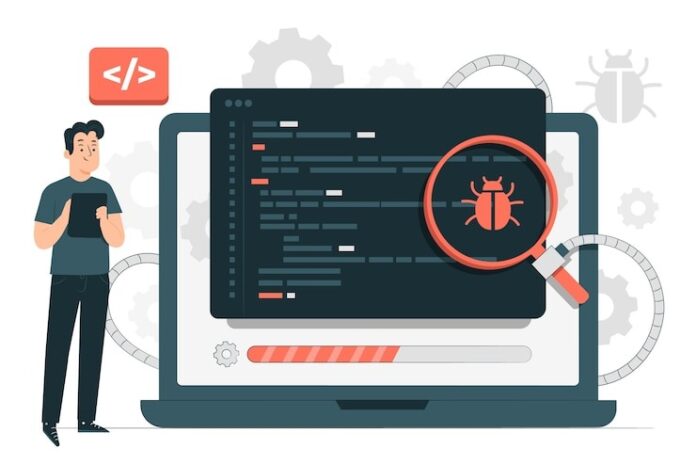Remember when you could find search terms on the internet? These days, web-search has become a euphemism for interaction and advertising algorithms. But search itself isn’t broken, it’s just been co-opted by marketing interests. Real, honest search is still out there if you know where to look.
The Model Context Protocol along with mcp-server-webcrawl changes the equation. No, you won’t be searching the whole web, but you’ll be able to stretch the utility of search within your own website.
Let’s dissect wget, Katana, InterroBot, and SiteOne in the context of MCP server for web crawls. Each of these crawlers is supported, and each has its own particular strengths. This is not a beauty contest, but the crawler you choose will lead to different characteristics of the web crawl, and ultimately the usefulness of the search. Each has quirks worth knowing about before you spend hours of crawl time.
The Anatomy of a Web Crawl
Before we compare, let’s acknowledge what we are actually trying to accomplish. We are creating a search archive of web content that plays nicely with mcp-server-webcrawl. This isn’t about who crawls fastest or has the most competent UI. It’s about what data gets preserved and how accessible it is to your LLM when you need answers.
Crawlers vary in how they handle HTTP status codes, headers, binary files, and error states. Some preserve everything meticulously while others blissfully ignore anything that doesn’t return a 200 OK. This matters when you’re trying to analyze why your website has odd layouts or dead links.
The Contenders


wget: The Reliable Workhorse
wget isn’t out to impress. It’s been dutifully downloading websites since before some of today’s devs were born. wget isn’t going anywhere, it will likely still be a reliable workhorse for decades to come, and for the simple reason that it gets the job done with minimal fuss.
When used with mcp-server-webcrawl in mirror mode, wget has a critical limitation: it doesn’t capture HTTP headers or status codes beyond 200 OK. That clever 404 page your team spent three days on? As far as wget’s concerned, the page doesn’t exist. If you need to analyze error states or redirects, look elsewhere.
Still, wget shines for its simplicity and reliability. Two commands to commit to memory:
wget –mirror https://example.com
wget –warc-file=example –recursive https://example.com
The first (–mirror) only collects files, while the second activates WARC mode, which preserves more headers and status. It is generally superior for MCP integration, though less intuitive to use, and a slower crawl. The truth of the matter is that HTTP headers and status codes are necessary for webdevs and security researchers, but hardly useful for other pros. If your interest is primarily content, the additional metadata will not be helpful.
The most glaring limitation of wget –mirror—the inability to track HTTP status codes—isn’t really a fault of wget. By design, it creates local copies of working websites, and by the time the indexer hits the content (now files on disk), the HTTP headers are in the ether.
InterroBot: GUI and Comprehensive Indexing
Some people love command lines, while others feel creeping anxiety at the mere sight of a command line interface. InterroBot caters to the latter group, wrapping crawl functionality in a GUI that won’t frighten the marketing department.
But this isn’t just a pretty face. InterroBot’s native SQLite database provides MCP with direct, indexed access to content. There’s no first-search indexing lag like with file-based crawlers. You click crawl, wait for completion, and your LLM can immediately start searching.
InterroBot preserves HTTP status codes, headers, and maintains a clean metadata structure. The tradeoff is speed—it’s more methodical, which makes it a marginally slower (but more comprehensive) crawl by default. There are configuration options to ease off of the crawl scope, to speed up the crawl. Take solace in the fact that the database is indexed in the background by InterroBot itself. It will be faster to initialize, and support larger website archives due to this.
InterroBot supports JavaScript rendering on Windows (standard HTTP-only crawling on macOS, currently).
SiteOne: Best of Both Worlds
SiteOne walks the middle road: GUI for operation, with wget-style file organization behind the scenes. It’s the Japanese sedan of web crawlers—turn the key and it’s ready to get you where you need to go. SiteOne packs more crawler options than most, allowing for an impressive level of fine tuning.
For MCP integration, SiteOne has an interesting quirk: it generates an output log alongside the wget-style file archive. This log preserves status codes that would otherwise be lost. The mcp-server-webcrawl implementation merges these two data sources, giving you better metadata than pure wget –mirror mode while maintaining the familiar wget archive structure.
Critically, “Generate offline website” must be checked for MCP compatibility. Miss this checkbox, and you’ll be staring at an empty search result wondering where your data went.
The most glaring limitation is similar to wget –mirror, in missing HTTP headers. This isn’t wget’s fault—it was designed to create local copies of working websites, not to analyze broken ones. Headers are similarly missing from both wget and SiteOne unless you’re using WARC mode.
Katana: Fast and Optionally Headless
Katana crawls through websites with minimal overhead. This Go-based crawler excels at performance while also supporting security scanning, making it an excellent option when you need raw horsepower.
Paired with mcp-server-webcrawl, Katana provides a clean, structured dataset that includes HTTP status codes and headers. It captures the spectrum of responses from 200 OK to those pesky 404s, giving you a more complete picture of your web infrastructure.
Katana supports JavaScript rendering. In addition to classic HTTP crawling, it can pull the fully rendered content. This means your LLM can search what humans actually see, not just what the server initially delivers.
The Perfect Crawler Doesn’t Exist


There’s no perfect crawler for every situation. Your choice depends on your tolerance for complexity, and your specific needs:
- Pure simplicity: wget in WARC mode, minimal fuss, decent metadata
- JavaScript Rendering: Katana or InterroBot (Windows) for sites when you need rendered content
- Zero command line: SiteOne or InterroBot for non-technical users and instant search capability
- Crawl Speed: Katana or wget on the command line for maximum network throughput
- Crawl Size: InterroBot for moderately large sites, to avoid index lag
All four play nicely with mcp-server-webcrawl, giving your LLM access to Boolean search precision that would make LexisNexis jealous. The differences matter mainly for specialized scenarios like error analysis, header inspection, and very large crawls.
Bring it On
The Boolean search revival of MCP is a return to finding exactly what you asked for. Each of these crawlers offers a window into that precision, with tradeoffs in complexity, speed, and metadata.
Whichever you choose, setting up mcp-server-webcrawl takes mere minutes. The real investment is disk space and crawl time. Start small, find the crawler that fits your workflow, and rediscover the joy of search results that literally MATCH.
After all, not everything needs a black-box algorithm deciding what you meant to search for. Sometimes, cold hard Boolean truth is what you need.






